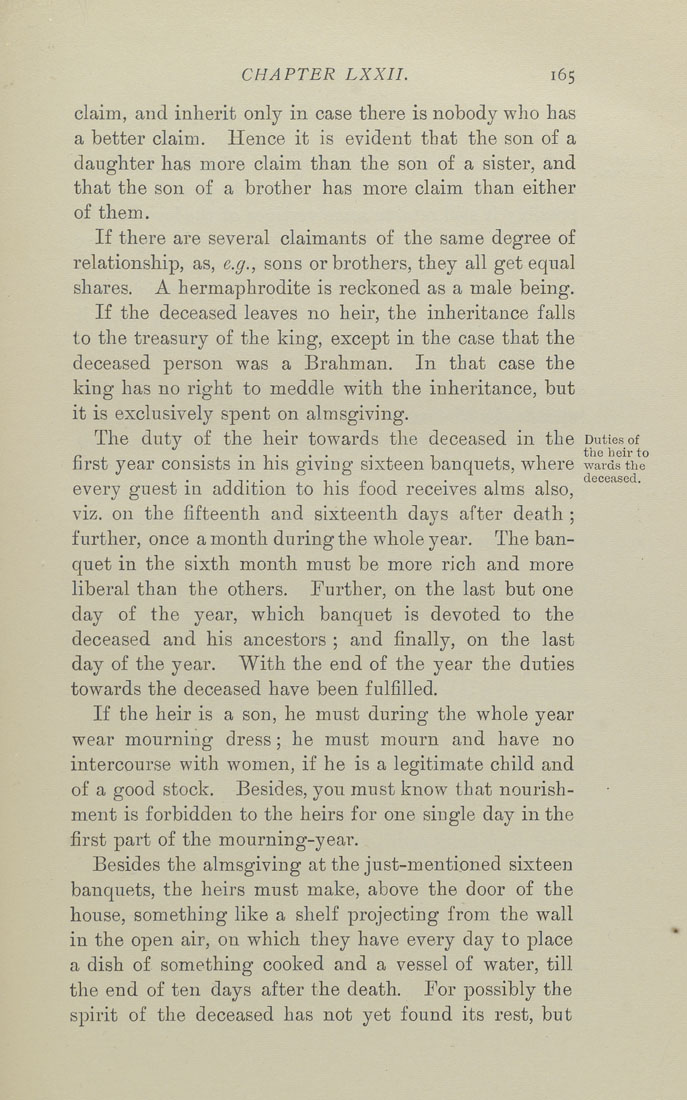CHAPTER LXXII. 165
claim, and inherit only in case there is nobody who has
a better claim. Hence it is evident that the son of a
daughter has more claim than the son of a sister, and
that the son of a brother has more claim than either
of them.
If there are several claimants of the same degree of
relationship, as, e.g., sons or brothers, they all get equal
shares. A hermaphrodite is reckoned as a male being.
If the deceased leaves no heir, the inheritance falls
to the treasury of the king, except in the case that the
deceased person was a Brahman. In that case the
king has no right to meddle with the inheritance, but
it is exclusively spent on almsgiving.
The duty of the heir towards the deceased in the Dutiesof
first year consists in his giving sixteen banquets, where wards the
every guest in addition to his food receives alms also,
viz. on the fifteenth and sixteenth days after death ;
further, once a month during the whole year. The ban¬
quet in the sixth month must be more rich and more
liberal than the others. Further, on the last but one
day of the year, which banquet is devoted to the
deceased and his ancestors ; and finally, on the last
day of the year. With the end of the year the duties
towards the deceased have been fulfilled.
If the heir is a son, he must during the whole year
wear mourning dress; he must mourn and have no
intercourse with women, if he is a legitimate child and
of a good stock. Besides, you must know that nourish¬
ment is forbidden to the heirs for one single day in the
first part of the mourning-year.
Besides the almsgiving at the just-mentioned sixteen
banquets, the heirs must make, above the door of the
house, something like a shelf projecting from the wall
in the open air, on which they have every day to place
a dish of something cooked and a vessel of water, till
the end of ten days after the death. For possibly the
spirit of the deceased has not yet found its rest, but
|








